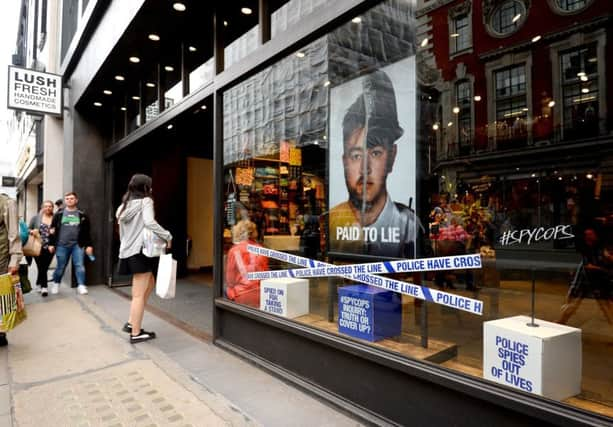Chris Marshall: Lush raised genuine concerns about undercover police


When retailer Lush launched its latest initiative last week it must have been prepared for the wave of opprobrium that would sweep its way.
The company sought to draw attention to the so-called “spy cops” scandal, which is currently the subject of a judge-led public inquiry in England after it was revealed that a number of undercover officers had tricked women into relationships and also assumed the identities of dead children.
Advertisement
Hide AdAdvertisement
Hide AdGiven the level of outrage directed at Lush over the weekend we can only assume that if its campaign was designed to sell soap, then it was an abject failure. But even a cursory reading of the company’s history reveals it to be a retailer unlike the majority of those it shares Britain’s high streets with.
It has never shied away from controversy in the past, pledging its support for the Freedom for Palestine song project in 2011 and naming an incense Lavender Hill Mob following the London riots.
Its latest project comes as campaigners in Scotland prepare to go to the Court of Session in the hope of forcing a public inquiry into undercover policing.
Earlier this year, Justice Secretary Michael Matheson concluded there was no need for an inquiry in Scotland, despite unsuccessfully petitioning the Home Office to have the Undercover Policing Inquiry in England and Wales extended north of the border.
Mr Matheson last week joined with Home Secretary Sajid Javid in wilfully misunderstanding Lush’s campaign, helping to stoke outrage on social media where the hashtag #FlushLush quickly began trending.
The Justice Secretary should know better. Earlier this year he was provided with a report by HM Inspectorate of Constabulary in Scotland which found controversial undercover officers linked to English units had come north of the border on multiple occasions in the 1990s and 2000s, including during the G8 summit at Gleneagles in 2005.
One of those officers was Mark Kennedy, a notorious undercover operative who tricked women into sexual relationships.
It was the activities of Kennedy and others like him that forced the Metropolitan Police to issue an unreserved apology to a number of women in 2015.
Advertisement
Hide AdAdvertisement
Hide AdNo one questions the important work done by undercover police officers; their activities can be crucial in catching and apprehending terrorists, drug dealers and paedophiles.
But in spying on political campaigners and environmental activists, a small band of rogue operatives went way beyond what is morally justifiable.
Nor is this an issue confined to leftist agitators – it should be of concern to anyone who has ever taken part in a political campaign or industrial dispute.
In that respect Lush was right to highlight it, but the company was naive in the extreme if it thought the message wouldn’t get hijacked.
We live in an age where the merest perceived slight is met with social-enabled outrage and where all nuance is quickly lost. To its credit, the company has so far refused to back down despite accusations of being “anti-police” and being referred to the Advertising Standards Authority.
Sadly in this easily outraged age, its message has been lost.
